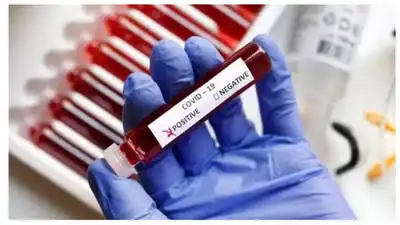The COVID-19 virus has made a comeback after a lull of a couple of years, and there has been a surge in the number of cases worldwide, including India. For now, most cases remain mild, and patients are recovering well at home, though the government has issued caution for those who are suffering from co-morbidities, including pregnant women, and elderly people. However, the COVID-19 virus continues to change and mutate, creating new variants that spread differently and cause different symptoms. One of the newest variants, called NB.1.8.1 or “Nimbus,” has caught the attention of doctors and patients worldwide because it often causes a very painful sore throat, also called “razor blade throat.” Let’s dig deeper into the new symptom… Video
History of the Nimbus variant
Nimbus (NB.1.8.1) is a descendant of the Omicron variant, and was first detected in January 2025. Since then, it has spread quickly across many countries, including the United States, Canada, the United Kingdom, India, and parts of Asia. However, according to the World Health Organization (WHO) the variant remains mild as of now, and does not cause severe illness.
Why Is Throat Pain So Common with Nimbus
Doctors have noticed that many patients infected with Nimbus report a sore throat that feels extremely painful, to the extent that even drinking water feels difficult. Some describe it as if they are “swallowing razor blades” or “glass.” This is different from the mild sore throat people experienced with earlier COVID variants.
Leading doctors explain that in this symptom, the throat feels very dry and cracked, causing intense pain. This severe throat pain likely happens because the virus causes inflammation and irritation in the throat tissues, leading to pain that can exacerbate while eating and drinking.
Other symptoms
Though throat pain is the new symptom of the Nimbus variant, it usually comes with other common COVID symptoms. These include:
Cough
Fever
Fatigue
Muscle aches that feel like extreme fatigue and tiredness
Nasal congestion that can last longer than usual
Headaches
Nausea or vomiting
Changes in taste or smell
These symptoms are similar to those seen with other Omicron variants as well.
What should you do if you have a sore throat
Not all sore throats will be caused by Covid. However, if you are experiencing other symptoms as well, along with a sore throat that feels sharp or burning, especially if it is severe enough to make swallowing difficult, you should:
Get tested for COVID-19: Since throat pain is a key symptom of the Nimbus variant, testing can confirm if you have the virus.
Stay isolated: To prevent spreading the virus to others, stay home and avoid close contact with people.
Drink plenty of fluids: Even if it hurts, try to keep yourself hydrated to soothe your throat.
Use throat lozenges or warm salt water gargles: These can help ease the pain temporarily.
Seek medical help if symptoms worsen: If you have trouble breathing, persistent high fever, or severe pain, contact a healthcare provider immediately.
Remember, sore throats can also be caused by a bacterial infection that can only be managed with antibiotics. However, since Covid is a virus, it does not respond to antibiotics. Hence, it is important to not self medicate, and consult a doctor.
